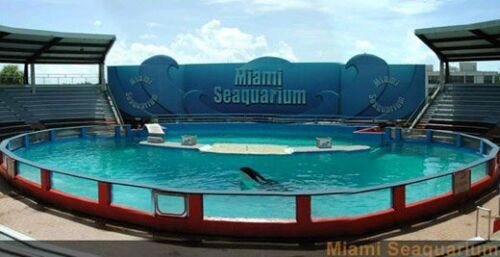Joey said:
I have two pet cockatiels. When I open their cage, I have to FORCE THEM to exercise. I have to literally push them off their perches.
How many people have the desire to get up and go for a run or travel immense distances every day?
When they say Orcas travel huge distances, the part they're missing is that they do it FOR FOOD and other NATURAL desires.
No different to people living in captivity, yet we're more concerned for whales than ourselves.
How many fatties are sat complaining about the rights of an Orca to swim free?
Boggles my mind.
I was going to mention this yesterday, but I thought you might :lol:
I think for some animals, the security provided by being in captivity works for them. Lions I think are 100% in this category. In the wild, they only hunt when absolutely required and spend huge amounts of time "conserving energy". They're very social animals and spend a lot of time doing as little as they can. I often visit Chester Zoo, and the lions always seem content just lazing about.
In contrast, the Tigers pace. In the wild, tigers are solitary and territorial. It is instinctive for them to roam large areas, protecting their territory, whether there is a clear threat or not. Even with plentiful food available, tigers will roam large areas. Tigers in zoos always make me sad - but I don't know if the tigers are aware they should be sad

Would a tiger be happier in a forest filled with plenty of game and a wide area to roam? No food worries, but potential conflict from other tigers? I've seen documentaries where tigers do "play" when they are content - so probably is the answer.
Would a lion be happier on a the savannah, hunting dangerous prey and under constant threat of starvation or territorial infringements from rival males when all it wants to do is lie about being fed? Probably not.
I think security is much more important to some animals than others. A chimp in a family group in a decent zoo is likely to be as happy as a chimp in a family group in a jungle. They have the security of plentiful food, but also the social requirement chimps need to make them content as an intelligent species. There's nothing sadder in this world than Drayton Manor's ageing chimp "old man"; alone in a large enclosure for the last 50 years.
And this is where you need to be careful. Orcas are highly intelligent and highly social creatures AND we don't know how to be social with them on their terms. It's easy with primates, as we know that touch and facial communication can work wonders to comfort other primates. We have a basic understanding.
Orcas just don't have that unless they have other orcas to be social with. Even then, it really is like us being locked in a room in a house with people we don't know and may not like.
I agree with what you're saying Joey, but in human terms (and orcas are as self aware and of near/similar human intelligence as us) it's a forced imprisonment. Unlike primates, there's no way we can offer comfort or understanding to the animal, it's simply beyond us. They may enjoy playing with their human friends as an aside (in the same way we may enjoy playing with an XBox), but the basic social needs aren't met. Poor accommodation and poor family/friends network. As a race, we often choose a life like this, and perhaps given a choice Orcas would too, but they don't have the choice.
So where does it leave us? Nowhere really :lol: They seem to do well in the wild, so their lifestyle choice seems to be working for them. I imagine they're glad they took the option to go back into the water and didn't even have the "we should never have left the trees in the first place" problem primates do



